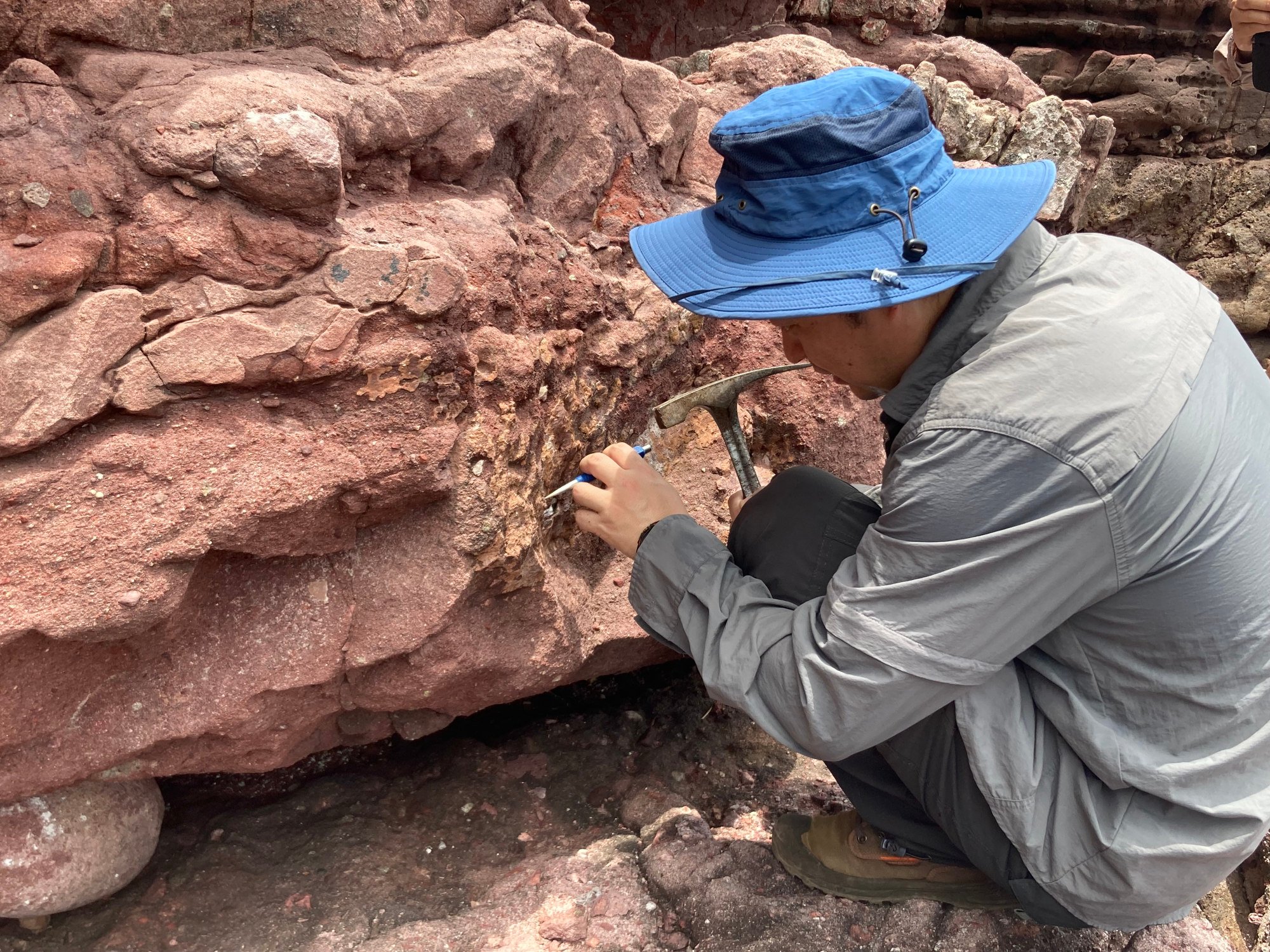The first dinosaur fossils discovered in Hong Kong may provide valuable insights into the Cretaceous period’s terrestrial ecosystems in South China and bring new blood to the academic field, experts have said.
But a veteran geologist expressed concerns that the fascinating find could result in lasting damage to nature, adding that the city’s curriculum design had misled students interested in geology into selecting a social science subject.
The experts’ remarks were made before a group of fossil rocks found on Port Island in the Hong Kong Unesco Global Geopark was due to be shown to the public for the first time on Friday.
Do you have questions about the biggest topics and trends from around the world? Get the answers with SCMP Knowledge, our new platform of curated content with explainers, FAQs, analyses and infographics brought to you by our award-winning team.
Young Ng Chun-yeong, former chairman of the Association for Geoconservation and a key proponent of the geopark designation, said he expected the discovery to reignite public interest in geoscience and deliver long-term benefits to academia.
“Before having the geopark, most people thought that Hong Kong was mainly a city and a concrete forest, without paying special attention to the natural rock foundations that we have,” said Ng, who now chairs an ecotourism strategy reference group of the Australian Geoscience Council.
“Now that dinosaur fossils have been discovered, people will again notice that the natural foundation of Hong Kong is quite spectacular.”
The star attraction of the geopark has long been the hexagonal rock columns in Sai Kung, which were formed when a supervolcano erupted 140 million years ago.
Ng said that with the finding, “a new story will emerge” that will also put the sedimentary rock formations in other parts of the geopark under the spotlight.
“New stories will create new excitement, especially for teenagers as they are particularly interested in dinosaurs. So we can use the fossils as an attraction to stimulate teenagers’ interest in this aspect, which will drive interest in future learning,” he said.
Ng added that the greater interest from students might also make geoscience research topics popular at universities, which could eventually lead to an increase in researchers and resources in the city’s Earth science academia.
The fossils belonged to an undetermined kind of dinosaur that dated to the Cretaceous period about 145 million to 66 million years ago.
Palaeontologist Fion Ma Wai-sum said that no animal could survive alone in the wild. She explained that the discovery suggested there was an ecosystem in the vicinity of the island during prehistoric times.
“It definitely helps to provide a full picture of the dinosaurs living in South China in the past,” she said.
She added that it was plausible that experts would find even more fossils on the island, not only dinosaurs but other animals and plants.

She also expressed hopes that more resources would be allocated to relevant research, education and outreach activities due to the new discovery and the scientific significance of it.
Michael Pittman, assistant professor at the school of life sciences at the Chinese University of Hong Kong, said experts will compare the fossils found in the city with those from mainland China after conducting scientific research to determine the exact type of dinosaur.
“There are a lot of things that we can find out with further study,” he said.
“If the new finds lead to additional resources for the further expansion of paleontological studies in the city, that would be fantastic.”
Chan Lung-sang, a visiting professor of the Department of Earth and Planetary Science at the University of California, Berkeley, said he doubted sufficient resources would ever be properly allocated to support geological studies in Hong Kong because geology was often considered as a marginal subject at schools.
“Although many students are passionate about topics like rocks, fossils and weather, they are frequently directed toward studying geography, which is primarily social studies ... The current school curriculum design, unfortunately, is not conducive to a proper earth science education in Hong Kong,” he said.
The veteran geologist, who curated the new palaeontology gallery that opened last year at the Science Museum, also cautioned against attempts to commercially exploit scientific discovery.
“My greatest concern is that fascinating discoveries, such as the dinosaur bone fossils, could end up being leveraged for economic initiatives, like promoting ‘dinosaur bone tourism’,” he said.
“This could potentially lead to infrastructure development in our country parks, eventually resulting in irreversible changes to our natural heritage.”
More from South China Morning Post:
- Hong Kong dinosaur fossils found in 2013 but ‘priorities’ delayed identification: official
- Why no dinosaur fossils found earlier in Hong Kong? Few resources, old assumptions on geology
For the latest news from the South China Morning Post download our mobile app. Copyright 2024.





